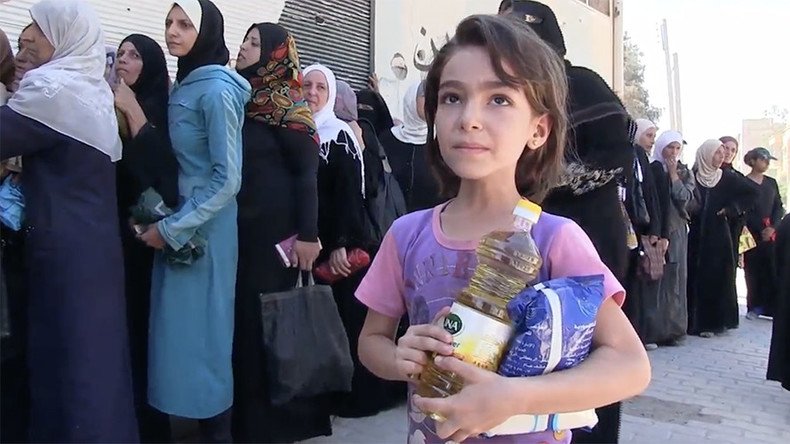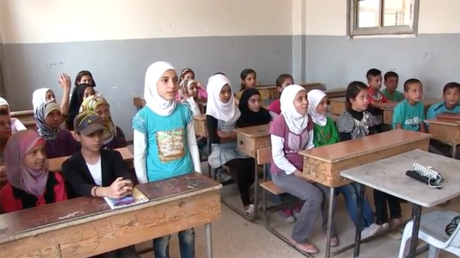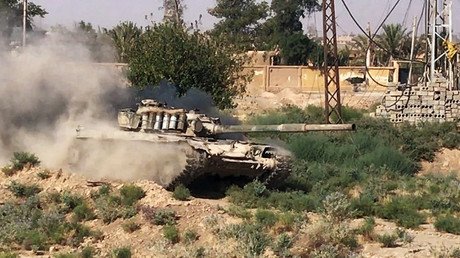‘We’ve been dead already’: Deir ez-Zor residents recall horrors of ISIS blockade

Residents of the Syrian city of Deir ez-Zor, who endured years of Islamic State (IS, formerly ISIS/ISIL) terrorist blockading, share with RT their painful experiences, full of death, hunger and destruction.
The city of Deir ez-Zor was heavily blockaded by Islamic State terrorists for several years, with supplies and ammunition being delivered to the enclave only by transport planes and helicopters.
The siege was lifted by the Syrian Army with Russian air support earlier this month. Opening the land route to the city allowed a reliable supply route to be established. As the humanitarian aid began to flow into the Syrian stronghold, the locals recalled the horrors of the years-long siege.
“We fed our children with stale bread, cleaning the mold from it. We have long suffered from artillery strikes and shells; they usually hit civilians – children and women in particular,” a local woman told RT.
The lack of basic supplies and the constant shelling made the living conditions in the city unbearable, another young woman recalls.
“We walked the roads in fear, expecting any moment that a shell might hit us and we would die,” the woman recalls. “We’ve been under constant stress and disturbance. We thought only about death. There was no food, no medicine, no electricity and no water. We’ve been dead already.”
Residents of Deir ez-Zor bear the marks of malnourishment and the illnesses they contracted during the interminable siege.
“I have this because of anemia, and this too,” a local woman, Um Badr, told RT, while showing infection marks on her face.
“I’ve seen death with my own eyes – I swear by Allah, I’ve seen death. This is not life – we ate tree bark. And butter was not butter at all. We have seen death. There was no clean water, nothing,” she added.
A huge strain has been put on the city’s healthcare system by a shortage of medical supplies, as well as a steady flow of people wounded by shelling. The residents have been deprived of the most basic services.
“A nurse in the hospital could not give me a dropper,” a local man told RT. “There are dead people in the hospital on the floor, killed in shelling. Deir Ez-Zor was behind a tight blockade. They [ISIS] did not even allow a single wheat grain to slip in there.”
The city of Deir ez-Zor, which has been cut off the rest of the government-held areas, was reached by the Syrian Army and its allies on September 5. Syrian and Russian humanitarian aid was immediately sent to the exhausted city, and regaining control of the key Deir ez-Zor – Palmyra highway several days later allowed the establishing of a reliable supply route connection to the outside world. The Syrian Army is currently continuing its push against IS to secure the areas surrounding Deir Ez-Zor and expanding its area of control.
Russian Defense Minister Sergey Shoigu has urged the UN to pay attention to the situation in Syria , urging the international community to join Syrian and Russian humanitarian efforts. The UN should “immediately step up humanitarian assistance in the framework of the United Nations and humanitarian organizations and take an active part in restoring the destroyed houses, schools, hospitals and infrastructure facilities,” Shoigu wrote on Monday in a letter to UN envoy in Syria Staffan de Mistura.














